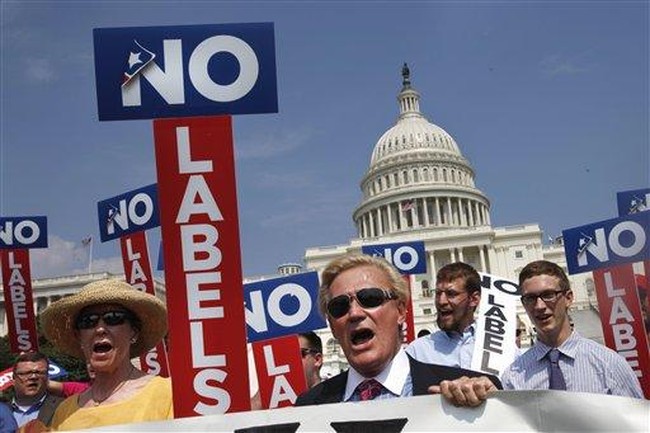
Elon Musk threw quite a scare into the Republican Party in July when he said he was so dissatisfied with the GOP’s and Donald Trump’s Big Beautiful Bill that he was going to form a third Party, the America Party.
Musk wasn’t serious. The Wall Street Journal reports that “The billionaire Elon Musk is quietly pumping the brakes on his plans to start a political party, according to people with knowledge of his plans,” reports the Journal. In fact, some of Musk’s closest advisors who helped him during the 2024 campaign were totally in the dark about his third-party plans.
Nevertheless, Musk and his billions started the chattering classes chattering. The overwhelming sentiment among political professionals is that the obstacles to creating a third party are so immense that, as long as the current system is in place, a successful third-party effort is doomed to fail.
The character of the chatter bent to which party he would hurt more. That’s always the question when politicos discuss a third-party campaign. The general consensus was that the GOP would be more at risk, given Musk’s close association with Donald Trump and recent bromance with Vice President J.D. Vance.
In fact, it’s Musk’s association with Vance that may have been the determining factor in his calling off his idea for a third party. “Musk has stayed in touch with Vance in recent weeks, and he has acknowledged to associates that if he goes ahead with forming a political party, he would damage his relationship with the vice president,” reports the Journal.
Musk for Veep? Given his appetite for notoriety and power, it wouldn’t be surprising if he thought it was a possibility.
Having now dismissed the prospect of a third party, allow me to make the case why one is not only possible but inevitable.
Skeptics underestimate three new twenty-first-century factors: intraparty conflict pushing both parties toward extremes; declining “brand” loyalty and rising allegiance to personalities and influencers; both parties’ role in creating a debt-to-GDP ratio over 100 percent, leaving them less able to co-opt credible fiscal solutions and with less pork to buy unity. These pressures make the political environment more receptive to new parties.
The Democrats may be closer to a split. Centrist leaders kept Bernie Sanders’s wing in check for years, but the barriers are weakening. Ironically, Republicans, with a more open primary process, elevated a nontraditional candidate like Donald Trump, while Democrats used party machinery to limit Sanders in 2016 and block serious 2024 challenges to Joe Biden. The party’s old guard has lost credibility, while the socialist wing—though still a minority—is younger, energetic, and ascendant. The party’s fixation on racialist ideologies and DEI quotas has hindered its flexibility and competence. Dysfunction could allow progressives with a platform beyond “defy Trump” to dominate Congress and the presidential primary.
MAGA has unified the GOP to a large extent, but that doesn’t mean that once Trump exits the stage, loyalty will fall to J.D. Vance by default. Don Jr. might have something to say about MAGA loyalty. While MAGA can certainly nominate a Republican of their choosing, winning a general election would be more problematic without Trump at the top of the ticket.
But the Democrats will continue to have a hard time keeping avowed socialists like AOC and Mamdani in line.
The Biden administration previewed this direction with open borders, the attempted erasure of biological sex, and massive public-sector growth. Unity was maintained only through unsustainable spending, temporary support for Israel, and regulatory overreach rather than outright nationalization. But regulatory excess drove fissures, pushing parts of Silicon Valley rightward.
A progressive takeover, especially with rising anti-Israel and anti-Semitic rhetoric, would push moderate Democrats away. Conditioned to despise Republicans, these voters might welcome a non-Republican alternative. Many are high-earning college graduates who would be among the first harmed by socialist policies. Some now support DSA politicians like New York City mayoral candidate Zohran Mamdani, but experience may teach them what their education didn’t: socialism impoverishes society and erodes liberties. A third party could offer them a political home without requiring reconciliation with Republicans.
The real roadblock to a third party is that there is no uniform ballot access in the 50 states. It’s enormously expensive, complex, and rigged against third-party efforts that force a candidate to gather signatures, pay lawyers and canvassers, and gather volunteers to do the scut work necessary to achieve ballot access.
Exclusively for our VIPs: Why the Concept of ‘Credentialism’ is Dying
In 2024, the No Labels Party kept making noises about being serious. But in the end, their grandiose plans came to nothing. It’s hard to say how much the organizers of No Labels were blowing smoke up our nether regions or whether they really were serious.
The same could be said for any third-party effort.
Help PJ Media tell the truth about American politics and culture. Join the fight, the fun, and the conversation as a PJ Media VIP! Right now, you can use promo code FIGHT to get 60% off your membership.















